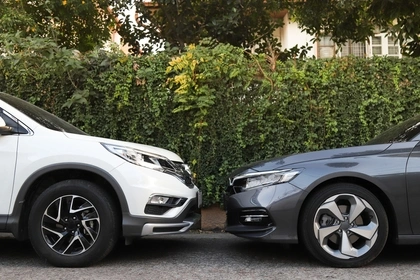Why is it more expensive for new drivers to get insured?
According to the road safety charity Brake, car insurance tends to be more expensive for new drivers for a number of reasons, including:
- Inexperience on the road
- High-risk driving behaviours
- Over-confidence in driving ability
These factors increase the likelihood of a young person having to make an insurance claim. As a result, insurance companies tend to charge young people higher premiums to offset some of this risk, from their point of view.
Are young drivers really a higher risk?
Yes, this is backed up by road safety charity Brake, who says young drivers are at a much higher risk of making a claim than older drivers. For example, it’s estimated that one in four 18 to 24-year-olds have an accident within two years of passing their test.
What options are available to lower costs for new drivers?
There are many ways you can reduce the cost of insurance. We’ve pulled together seven main options:
1. Black Box Insurance
It could be worth looking into black box insurance if you consider yourself to be a safe driver. These policies reward careful drivers with low premiums, as the risk of them being involved in an accident is much lower.
A black box is a tracking device that’s installed in your car to monitor your driving patterns. It can tell if you’re breaking the speed limit or if you’re involved in a collision, for example. Some policies focus on how you drive, while others take mileage into consideration. The criteria varies depending on the insurer you choose.
The insurance company uses the information gathered by the black box to calculate the risk of you making a claim. If you drive carefully and don’t spend much time on the road, then you may be considered low risk. But if you drive badly, you may jeopardise any discounts, and your insurer could cancel your policy.
2. Adding a second driver
Adding a second driver to your policy can reduce your car insurance costs - as long as they have a good driving record. This is due to experienced drivers lowering the risk of an accident.
Remember, it’s illegal to declare someone as the main driver if they are in fact a second driver. This is known as ‘fronting’ and can lead to legal action and the removal of your no-claims bonus. Also, if you were involved in an accident you wouldn’t be covered by your insurer, meaning you’d have to pay any costs out of your own pocket.
3. Getting a car that’s cheap to insure
Insurers don’t just look at your driving record, they also consider things like the value of your car, it’s performance, and if it has any modifications or security features, for example.
So before buying a car, calculate how much insurance you’d have to pay compared to a different make or model.
Bear in mind that a low-cost car doesn’t necessarily mean you’ll get a cheap deal. Insurers will also take other factors into account, like wear and tear and the risk of breaking down, which could increase your premiums.
4. Adding a voluntary excess
When you take car insurance, you’ll need to choose an excess amount. This is the sum you’ll have to pay towards any claim you make in the future. It’s normally between £250 to £1,000.
Your insurer will set the compulsory excess which can’t be changed. There’s normally the option of adding a voluntary excess on top of this. The more you’re willing to pay towards a claim, the lower your premiums will be, as the insurer won’t have to fork out as much money. So adding a high voluntary excess can help to keep your premiums down.
Tip: Choose a realistic excess figure that you know you’d be able to afford if you were to make a claim. Otherwise, you could risk overstretching yourself further down the line.
5. Consider paying annually
Many companies allow you to break the annual premium down into manageable monthly repayments. Paying for car insurance in this way is considered a form of credit, as you are insured up front and you pay the company back over time. Insurers often charge interest on top of the balance, which means it’s often more expensive compared to paying annually.
If you can afford to, consider paying for your car insurance upfront on an annual basis. This means you won’t pay any interest at all, and your overall premium should be cheaper. It also frees up some money each month, as it’s one less regular outgoing.
6. Getting a multi-car policy
If you’ve just passed your driving test and you don’t have a car of your own, consider getting yourself added to your parent’s policy. A multi-car policy covers everyone in the same household.
This may work out cheaper than paying for your own policy, but there’s no guarantee. It largely depends on whether your family has good driving records, or not. If they’re considered to be high risk, it could increase your premiums.
7. Shopping around
Each insurer uses its own criteria when it comes to calculating the price of cover. So we suggest you shop around online for insurance quotes – both directly and using comparison websites. You could even approach us to help you find a suitable offer.
Bear in mind that the cheapest deal isn’t always the best deal. You need to make sure you are getting the right level of cover for you before you commit.
Tip: When it comes to renewing your policy, never auto-renew without shopping around first to see if you can find a better offer with a different provider.
Compare cheap car insurance quotes
- Search over 100 providers
- Quick and easy comparison tool
Disclaimer: We make every effort to ensure content is correct when published. Information on this website doesn't constitute financial advice, and we aren't responsible for the content of any external sites.






